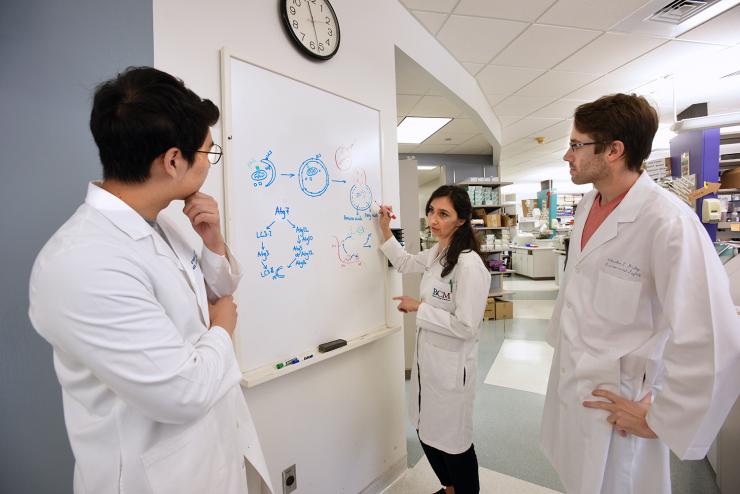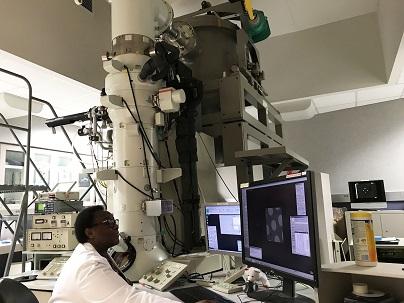Our Research

First and foremost among the reasons why BCM is an exceptional place to pursue postdoctoral training is our research. Nature Journal ranked Baylor College of Medicine as the second-fastest growing research institution in North America based on publications in high impact journals. The College ranks among the top 30 academic biomedical research institutions in the world in the 2019 Nature Index. In the Reuters listing of the World's Most Innovative Universities, Baylor ranks in the top 50. Our greatest strength as a research leader comes from our collaborative and innovative culture. Our faculty, which includes numerous members of prestigious scientific societies and award winners, is adept at applying deep knowledge of specific fields and working collaboratively with colleagues across disciplines to identify the right questions to ask and develop innovative protocols to answer them.
The Texas Medical Center
 Credit
Credit
Together the institutions of the Texas Medical Center are second in the nation in funding from the National Institutes of Health. In addition to supporting collaborations with the many hospitals, schools and research institutes in the TMC, the Center also facilitates state of the art research through specialized resources, including the TMC Innovation Institute, the TMC Library, and TCM Health Policy Institute. As a postdoctoral researcher here you will have access to all the resources of the world’s largest medical center, networking opportunities with researchers across disciplines and institutions and be able to attend seminars and lectures by experts from around the world who frequently visit the TMC.
Research Resources

Everyone at BCM has access to the state-of-the-art instrumentation and technologies of the Advanced Technology Core laboratories as well as training in how, when and why to use these tools. Each core is run by faculty and technicians with highly specialized expertise in the technologies provided.
Collaborative research centers create dynamic communities in which faculty and trainees engage across traditional scientific divides leveraging skills and resources from throughout the College as well as affiliated institutions.
In contemporary science, large sets of data are essential to investigations in many disciplines. The BCM Human Genome Sequencing Center and Baylor Genetics, provide access to high-quality genetic data. Involvement in the Human Microbiome Project, National Institutes of Health Brain Initiative, and other major national and international collaborations, facilitate access to extensive data repositories. Our extensive network of local hospital affiliates and partnership with CommonSpirit Health provides access to the extensive clinical data.
Houston
 Credit
Credit
The city of Houston ranks among the top 25 science cities, the top 15 cities for life sciences and the top 15 cities for corporate science in the world in the Nature Index. Houston offers something for everyone from a vast range of culinary experiences to professional sports and arts organizations and expansive green spaces. All of this in a city with a cost of living that is 23 percent below the average cost of living in the nation’s 20 largest cities.
Career Development
Your postdoc years are a pivotal point of transition in your career. While working with a great mentor and expanding your knowledge and skills set are primary, it is also essential to be thinking about your next step from day one of your postdoc training. The BCM Career Development Center provides workshops, seminars, resources, networking events, one-on-one counseling and other programs to help you define your career goals and successfully attain them.
Community
There are over 600 postdoctoral researchers at Baylor College of Medicine who come from across the United States and 46 countries. The Office of Postdoctoral Affairs and the Postdoctoral Association provide resources, services and events designed to help each postdoc find the support they need to succeed.








